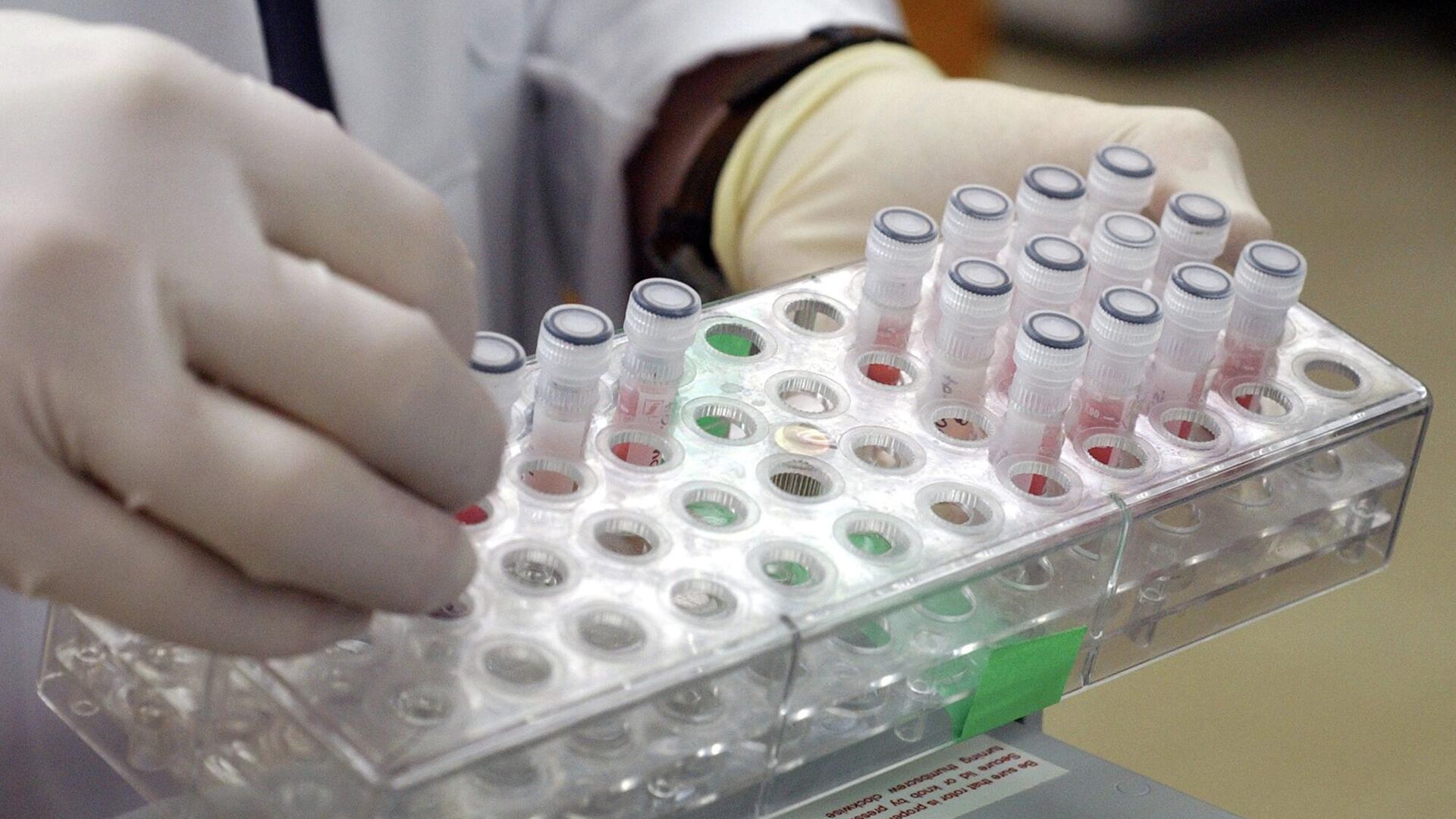https://sputnikglobe.com/20220516/uk-confirms-four-new-cases-of-monkeypox-urges-gay--bisexual-men-to-look-out-for-symptoms-1095550652.html
UK Confirms Four New Cases of Monkeypox, Urges Gay & Bisexual Men to Look Out For Symptoms
UK Confirms Four New Cases of Monkeypox, Urges Gay & Bisexual Men to Look Out For Symptoms
Sputnik International
Monkeypox is a rare viral disease transmitted to humans from animals, with lethality ranging from 1% to 10%. The infection is also transmitted between humans... 16.05.2022, Sputnik International
2022-05-16T19:19+0000
2022-05-16T19:19+0000
2023-05-28T15:19+0000
monkeypox
gay
united kingdom (uk)
https://cdn1.img.sputnikglobe.com/img/07e6/05/10/1095550627_0:113:2001:1238_1920x0_80_0_0_12ead5ac4c8b53f803adfd2c4d563d17.jpg
The UK Health Security Agency has confirmed that four additional cases of monkeypox have been detected in the country, three of them in London and one linked case in the northeast of England.These cases do not seem to be connected with the previously confirmed cases that were announced earlier in May. "Investigations are underway to establish links between the latest 4 cases, who all appear to have been infected in London. All 4 of these cases self-identify as gay, bisexual or other men who have sex with men (MSM)," the agency stated on Monday.The cases are also not linked to a country where monkeypox is endemic. It remains unknown exactly how the patients got infected, but it is under "urgent investigation," the agency said.Aside from unusual rashes, symptoms of monkeypox include headache, muscle aches, swollen lymph nodes, as well as chills and exhaustion.On 14 May, the UKHSA confirmed two monkeypox cases in London, shortly after revealing on 7 May that one UK individual was diagnosed with the viral disease.
united kingdom (uk)
Sputnik International
feedback@sputniknews.com
+74956456601
MIA „Rossiya Segodnya“
2022
Sputnik International
feedback@sputniknews.com
+74956456601
MIA „Rossiya Segodnya“
News
en_EN
Sputnik International
feedback@sputniknews.com
+74956456601
MIA „Rossiya Segodnya“
Sputnik International
feedback@sputniknews.com
+74956456601
MIA „Rossiya Segodnya“
monkeypox, gay, united kingdom (uk)
monkeypox, gay, united kingdom (uk)
UK Confirms Four New Cases of Monkeypox, Urges Gay & Bisexual Men to Look Out For Symptoms
19:19 GMT 16.05.2022 (Updated: 15:19 GMT 28.05.2023) Monkeypox is a rare viral disease transmitted to humans from animals, with lethality ranging from 1% to 10%. The infection is also transmitted between humans, but only via prolonged close contact or bodily fluids.
The UK Health Security Agency has
confirmed that four additional cases of monkeypox have been detected in the country, three of them in London and one linked case in the northeast of England.
These cases do not seem to be connected with the previously confirmed cases that were announced earlier in May.
"Investigations are underway to establish links between the latest 4 cases, who all appear to have been infected in London. All 4 of these cases self-identify as gay, bisexual or other men who have sex with men (MSM)," the agency stated on Monday.
The cases are also not linked to a country where monkeypox is endemic. It remains unknown exactly how the patients got infected, but it is under "urgent investigation," the agency said.
"This is rare and unusual," said Dr Susan Hopkins, UKHSA's Chief Medical Adviser. "The evidence suggests that there may be transmission of the monkeypox virus in the community, spread by close contact. We are particularly urging men who are gay and bisexual to be aware of any unusual rashes or lesions and to contact a sexual health service without delay."
Aside from unusual rashes, symptoms of monkeypox include headache, muscle aches, swollen lymph nodes, as well as chills and exhaustion.
On 14 May, the UKHSA confirmed two monkeypox cases in London, shortly after revealing on 7 May that one UK individual was diagnosed with the viral disease.

